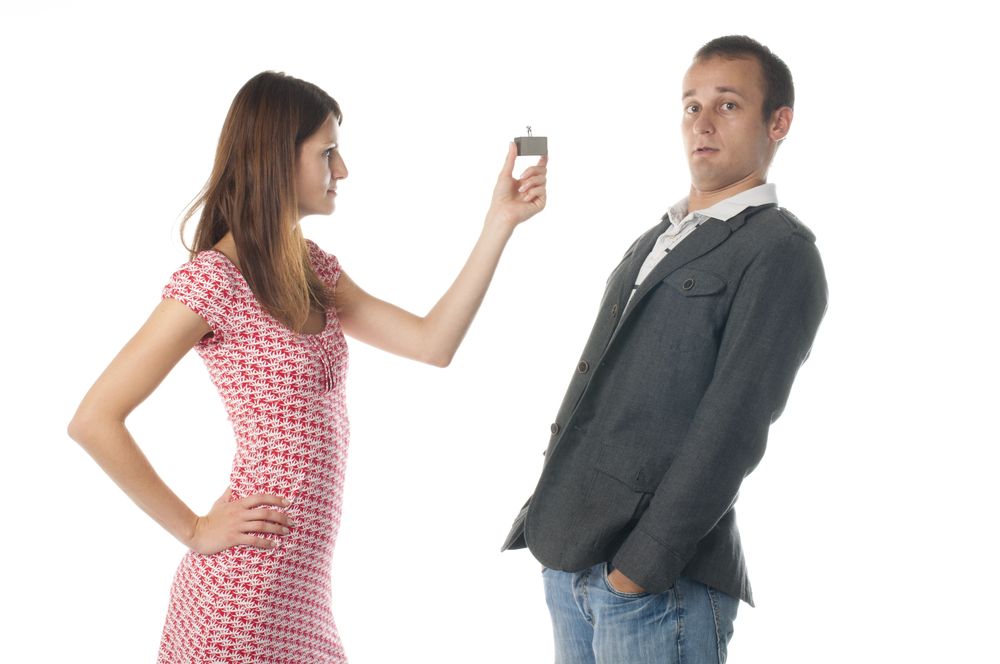'Leap Year' Marriage Proposals Bad for Women, Research Suggests

Leap year marriage proposals — where, by custom, women are granted the once-in-four-years privilege of proposing to their beaus — hold the promise of giving women real power in their relationships, but ultimately, they actually undermine women and reinforce long-standing stereotypes about traditional roles, a new paper concludes.
And after examining a century's worth of evidence of societal views of women who propose marriage, the research concludes that we're not likely to see greater acceptance of these proposals anytime soon.
"Women have made tremendous advances in many aspects of their lives, but in courtship, this penultimate act is still not valued or respected," said researcher Katherine Parkin, a professor at Monmouth University in New Jersey.
Parkin's article was published in the January issue of the journal Family History.
Women's right to propose
In her research, Parkin pored over references to leap year proposals in postcards, advertisements and newspaper columns dating back to 1904.
The evidence she found suggests that the proposals have always been fairly unusual, and their rarity and the attention given to them has only underscored the idea that in society's view, men should be the ones to initiate marriage. Leap year proposals are the exception that proves the rule.
Sign up for the Live Science daily newsletter now
Get the world’s most fascinating discoveries delivered straight to your inbox.
The custom has really been only a "safety valve" for women's frustrations at being dependent on men, Parkin said. The tradition gives women a supposedly "acceptable" chance to propose, but this chance is given only once every four years, and even then, their right to ask a man to marry has not been taken very seriously.
In fact, Parkin said she was surprised by the "incredible nastiness" toward women in postcards created in the early 20th century. Sending postcards was the craze back then, and leap year postcards depicted women — usually unattractive older women — holding guns to men's head in efforts to extract a promise of marriage. "They really disparaged women in ways that are cruel and heartbreaking," Parkin said.
Her research showed that women who propose seem to lose a bit of their femininity, in the traditional way it is viewed, and likewise men who accept a proposal lose a bit of their masculinity.
Even today, women who propose are the exception, Parkin said, pointing to the example of pop star Britney Spears proposing to then-boyfriend Kevin Federline. "Very few women have the wealth and power of someone like Spears, and her short, troubled marriage, as well as her struggles with her mental health, only make it less likely that other women would want to emulate her," Parkin said.
The power to propose
"I argue that the marriage proposal has remained a male prerogative (and responsibility) — and that men have sought to hold on to this power," Parkin said. And for their part, "women have chosen romance over the power to be equal partners in the decision-making process."
Still, today's marriages are entered into very differently than those of the past. "Most couples in the 21st century are not asking or responding out of the blue," Parkin said. "The decision to propose [and] accept has already been mutually decided in intimate moments," she said, adding that today's formal proposals are not really reflective of modern courtship behaviors.
As for her advice for anyone considering proposing today?
"I'm a historian — not a matchmaker," Parkin said. But she added, "I would say to individuals who love each other that they should be sure that it's a good, mutual decision and then go for it!"
Pass it on: Leap year marriage proposals from women may reinforce stereotypes.
This story was provided by MyHealthNewsDaily, a sister site to LiveScience. Follow MyHealthNewsDaily on Twitter @MyHealth_MHND. Find us on Facebook.











